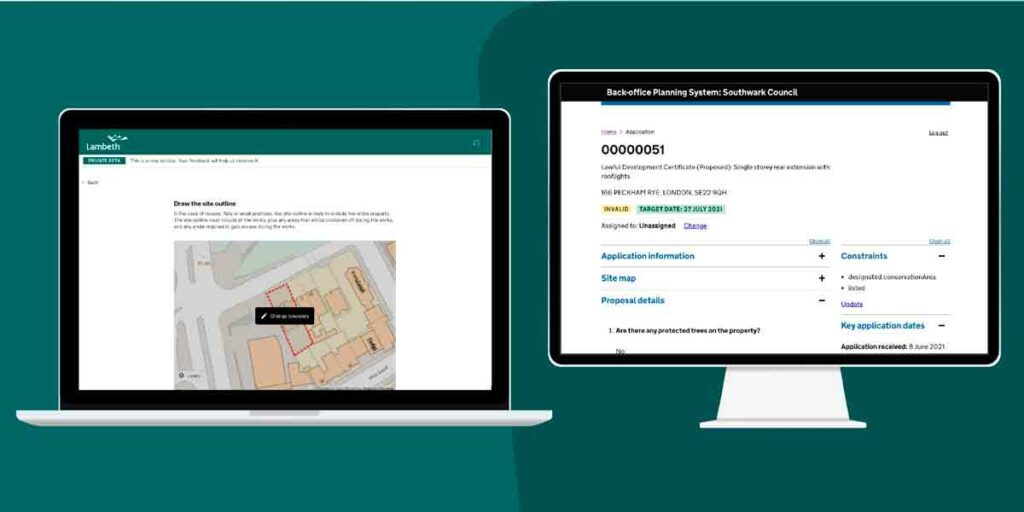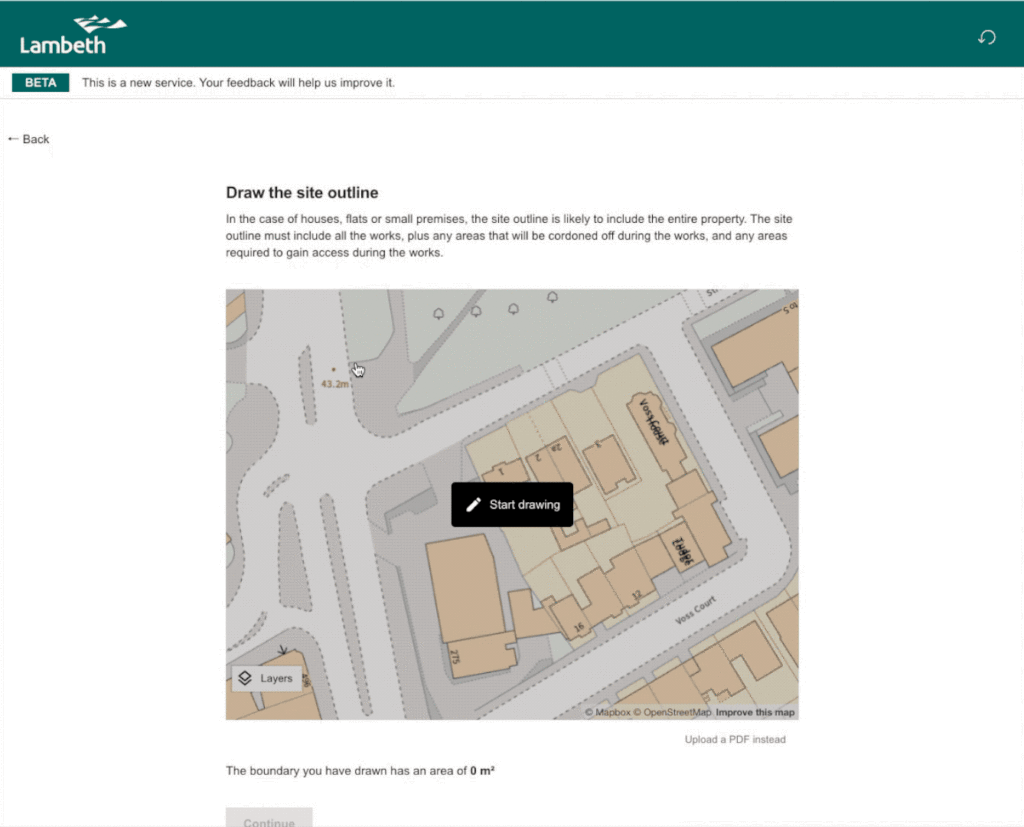
Lambeth is one of three local authorities taking part in tests to move planning applications from paper to digital nationally.
The Ministry of Housing, Communities and Local Government (MHCLG) has launched two trials in a first step towards digital planning.
A private beta of two new council-led digital planning products will be funded by MHCLG’s Local Digital Fund.
The ministry said this would be “an exciting step towards 21st century digital planning systems that use data and human-centred design to make applying for planning permission significantly simpler, faster and easier to understand.
The Reducing Invalid Planning Applications (RIPA) and Back-office Planning Systems (BoPS) projects are launching beta products to process “lawful development certificate” (LDC) applications.
These enable appiicants to confirm that a use, operation or activity is lawful for planning control purposes.
Participating councils are inviting residents that need an LDC to use the new service, so that the central government teams can collect user feedback as they continue to develop the products to process other types of planning application.
“This is one of the important first steps towards digital planning reform,” the ministry said.
The projects are being led by three pioneer councils: Lambeth, Southwark and Buckinghamshire.
The projects have been developed in partnership with other local authority partners including Northumberland and Camden councils.
MHCLG said the current planning system has not effectively adopted internet-era innovations, “resulting in a service that’s difficult to navigate and that only 1–3% of residents engage with”.
In the Planning for the Future white paper, published in August 2020, MHCLG outlined its intention to move the planning system towards a data-driven approach.
To achieve this, it said, it is is adopting a “collaborative and co-creation approach” with local government.
The RIPA and BoPS projects are at the forefront of this approach.
The two projects focus on householder applications – one of the most common in the planning system.
MHCLG said they would be designed with “significant inputs” from planning officers, and be based on user feedback. They would make applying for planning permission simpler for both applicants and local authority planners.
In the three partner councils, up to 50% of all planning applications are “invalid” or missing key information when received and need to be resubmitted, causing significant delays.
The RIPA project, led by Lambeth council in partnership with Buckinghamshire council, is simplifying and streamlining the complex application process.

MHCLG said the RIPA tool would make planning processes, policies and requirements as clear as possible.
“It does not ask applicants to research information that is already known by the planning authority.
“Applicants are shown the reasons behind any rule or decision, referenced all the way back to policy, legislation or case law,” MHCLG said.
“For the end user, the tool provides a number of new features. These include the ability to:
- View your planning constraints
- Draw your location plan
- Easily find and read relevant legislation
- Only answer questions relevant to your project.
Southwark council and three partners developed the beta version of the BoPS tool. MHCLG said it delivers benefits including:
- Easier access to planning data
- More efficient processing of planning applications
- Meeting the needs of planning officers and authorities
- Displays application data to planning officers in a more user-friendly format
- Updating applicants on the progress of their applications
- Validating applications, with built-in communication tools to engage with users on their applications
MHCLG said that as well, as benefitting planners, the products bring debveloped would also benefit the general public.
“Applying for planning permission will be simpler and faster, and by making planning policies and requirements easier to understand, homeowners will not have to be expert planners to put forward simple planning applications,” it said.
Councils taking part will first test the tool with a small group of users.
MHCLG is also testing how best to digitally transform local plans and working with 10 councils to test the use of digital tools in the planning process.






